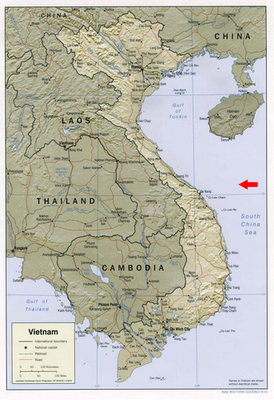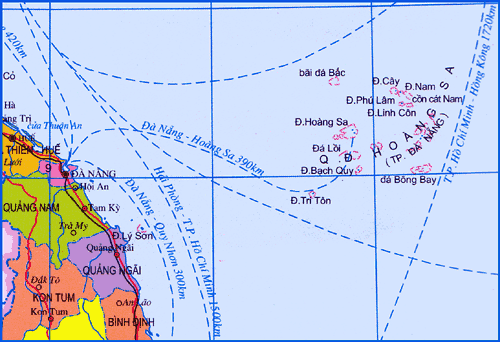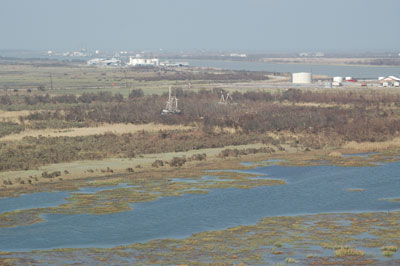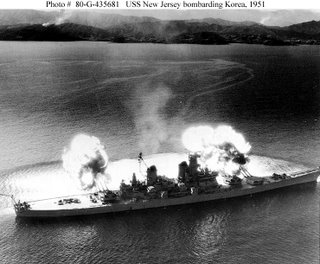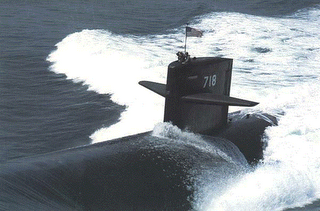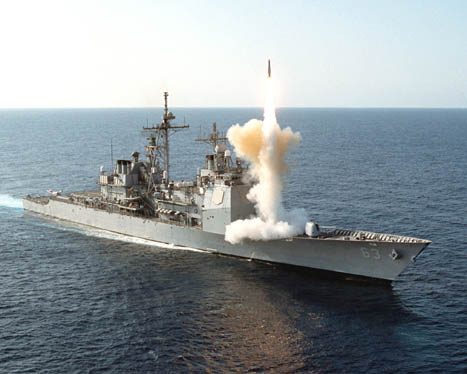My first read of the Hamdan
decision is that Congress will have to do some hard thinking about the GWOT and what to do with stateless combatants.
UPDATE:
This is probably right.
UPDATE2: The Supremes question the
timing:
The charge against Hamdan, described in detail in Part I, supra, alleges a conspiracy extending over a number of years, from 1996 to November 2001.30 All but two months of that more than 5-year-long period preceded the attacks of September 11, 2001, and the enactment of the AUMF--the Act of Congress on which the Government relies for exercise of its war powers and thus for its authority to convene military commissions.31 Neither the purported agreement with Osama bin Laden and others to commit war crimes, nor a single overt act, is alleged to have occurred in a theater of war or on any specified date after September 11, 2001. None of the overt acts that Hamdan is alleged to have committed violates the law of war.
These facts alone cast doubt on the legality of the charge and, hence, the commission; as Winthrop makes plain, the offense alleged must have been committed both in a theater of war and during, not before, the relevant conflict. But the deficiencies in the time and place allegations also underscore--indeed are symptomatic of--the most serious defect of this charge: The offense it alleges is not triable by law-of-war military commission. See Yamashita, 327 U. S., at 13 ("Neither congressional action nor the military orders constituting the commission authorized it to place petitioner on trial unless the charge proffered against him is of a violation of the law of war").32
The AUMF is the Authorization for Use of Military Force, passed by Congress after the 9/11 attack. I reckon the Executive Branch should have gone to Congress at some point following the first al Qaeda attacks and sought an AUMF, maybe after bin Laden declared war on the US. As it is, it seems odd that attacks on US embassies, ships and all by an entity do not constitute acts of war sufficient to trigger the Winthrop "during a conflict" rule. In my very hasty early on-the-run reading, it occurs to me that this matter is on the seams of a lot of law and many brilliant minds can end up on opposite sides of the issue (as in a 5-3 decision overruling a decision in which now Chief Justice Roberts was in the majority in a lower court.
If I were a Congressman, I would offer up a Declaration of War against al Qaeda dating back to the first attack admitted by Osama bin Laden, just to fix relevant time periods and to get the War with al Qaeda fully debated.
UPDATE3: War or not? that is the question posed by Professor Bainbridge
here. As I state above, the legal aspects of this ruling and the GWOT are right along the seams.
UPDATE4: Glad to see I am not the only person confused by the Geneva Code discussion by Justice Stevens.
David Frum is boggled, too:
Let's take that slow: The Geneva conventions say that in a non-international conflict (a civil war for example) the parties to the conflict must observe certain restraints upon their treatment of detainees, including judgments on them only by regularly constituted courts. Fine. But a war between the United States and a multinational coalition on the one hand - and a gang of terrorists recruited from Saudi Arabia, Pakistan, Yemen, and dozens of other countries - conducted on the territory of Afghanistan and Pakistan, not to mention many other places as well - how can such a war be considered "non-international"?
Well here is Justice Steven's answer:
The D. C. Circuit ruled Common Article 3 inapplicable to Hamdan because the conflict with al Qaeda is international in scope and thus not a “conflict not of an international character."
However, Stevens continues,
That reasoning is erroneous. That the quoted phrase bears its literal meaning and is used here in contradistinction to a conflict between nations is demonstrated by Common Article 2, which limits its own application to any armed conflict between signatories and provides that signatories must abide by all terms of the Conventions even if another party to the conflict is a nonsignatory, so long as the nonsig- natory “accepts and applies” those terms. Common Article 3, by contrast, affords some minimal protection, falling short of full protection under the Conventions, to individuals associated with neither a signatory nor even a nonsignatory who are involved in a conflict “in the territory of” a signatory. The latter kind of conflict does not involve a clash between nations (whether signatories or not).
Does that make any sense to you? Me neither.
If you can explain what Steven wrote in terms simple enough to be understood by the common man, I will post your comment as an update. And did I mention you can read the entire opinion
here?
UPDATE4: Mark Levin is not
happy.
UPDATE5: General Article 3 of
Geneva Conventions III, "Relative to the Treatment of Prisoners of War":
Art. 3. In the case of armed conflict not of an international character occurring in the territory of one of the High Contracting Parties, each Party to the conflict shall be bound to apply, as a minimum, the following provisions: (1) Persons taking no active part in the hostilities, including members of armed forces who have laid down their arms and those placed hors de combat by sickness, wounds, detention, or any other cause, shall in all circumstances be treated humanely, without any adverse distinction founded on race, colour, religion or faith, sex, birth or wealth, or any other similar criteria. To this end the following acts are and shall remain prohibited at any time and in any place whatsoever with respect to the above-mentioned persons: (a) violence to life and person, in particular murder of all kinds, mutilation, cruel treatment and torture; (b) taking of hostages; (c) outrages upon personal dignity, in particular, humiliating and degrading treatment; (d) the passing of sentences and the carrying out of executions without previous judgment pronounced by a regularly constituted court affording all the judicial guarantees which are recognized as indispensable by civilized peoples. (2) The wounded and sick shall be collected and cared for. An impartial humanitarian body, such as the International Committee of the Red Cross, may offer its services to the Parties to the conflict.
The Parties to the conflict should further endeavour to bring into force, by means of special agreements, all or part of the other provisions of the present Convention.
The application of the preceding provisions shall not affect the legal status of the Parties to the conflict.
General Article 2:
Art. 2. In addition to the provisions which shall be implemented in peace time, the present Convention shall apply to all cases of declared war or of any other armed conflict which may arise between two or more of the High Contracting Parties, even if the state of war is not recognized by one of them.
The Convention shall also apply to all cases of partial or total occupation of the territory of a High Contracting Party, even if the said occupation meets with no armed resistance.
Although one of the Powers in conflict may not be a party to the present Convention, the Powers who are parties thereto shall remain bound by it in their mutual relations. They shall furthermore be bound by the Convention in relation to the said Power, if the latter accepts and applies the provisions thereof.
I'm sure it's made much clearer by the actual language of the Geneva Conventions. To someone. Not to me.
UPDATE6: Chester sees some unintended
consequences of the ruling and Wretchard asks more
questions. The end of the Geneva Code? Read the comments, too.
UPDATE7: Former dean of Boston U law sees a
Kelo-like decision and doesn't much like it
it:
The Supreme Court, trying hard on the anniversary of last term's Kelo decision to find a suitable sequel, performed a rare triple loop in Hamdan v. Rumsfeld. It found jurisdiction in the face of a statute directly taking jurisdiction away from the Court. It second-guessed the President on the need for particular security features in trials of suspected al Qaeda terrorists. And it gave hope to One-World-ers by leaning on international common law to interpret U.S. federal law. If that weren't enough, the (left, lefter, and far left) turns were executed in the course of giving a court victory to Osama bin Laden's driver. What a perfect way to end the term!

